10 Supplements to Help Ease Your PMS Symptoms, According to a Doctor

Premenstrual syndrome (PMS) affects every three in four menstruating women, causing a range of unpleasant symptoms that many would rather do without. These can include fatigue, irritability, mood swings, breast tenderness, food cravings, depression, acne, headaches, and more.
If you’ve ever contended with these pre-period symptoms, you know that every little bit of relief is welcome—whether that comes in the form of a much-needed nap, a hot water bottle, or trying a symptom-soothing supplement. That’s why we checked in with family medicine doctor Bernadette Anderson, MD, MPH, to find out which supplements she recommends to ease PMS symptoms. She says there are 10 to ask your doctor about—each of which can improve a particular ache or ailment.
RELATED: This Uncommon Supplement Can Improve Your Sleep and Mood, New Study Says.
1
Omega 3s
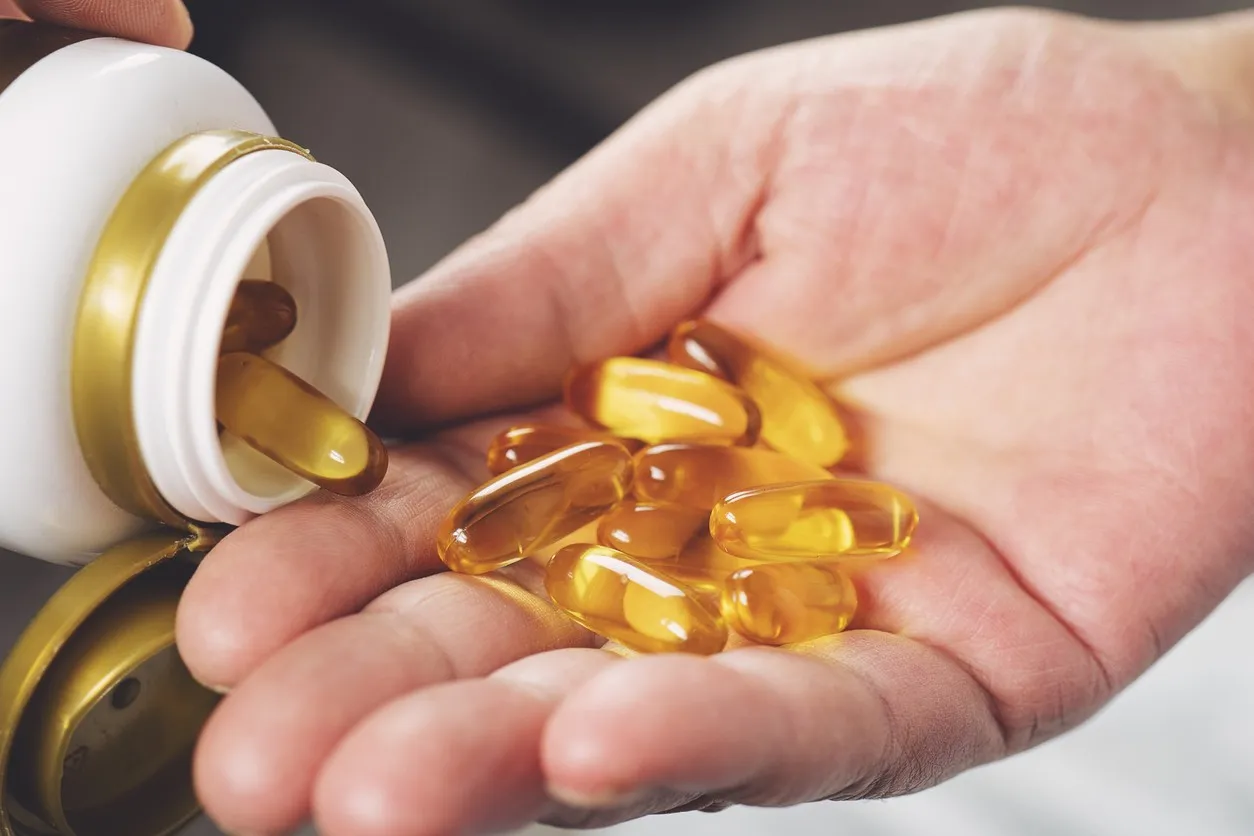
Brain-boosting Omega-3s can be found in foods like fatty fish, chia seeds, flaxseeds, and soybeans, but a supplement can also help you meet your quota and relieve your PMS symptoms.
“Omega-3 fatty acids are healthy fats with strong anti-inflammatory benefits, which can help ease menstrual cramps. They also support mood stability and may help reduce anxiety tied to hormonal shifts. Try aiming for 1,000-2,000 mg a day,” Anderson advises.
2
Electrolytes
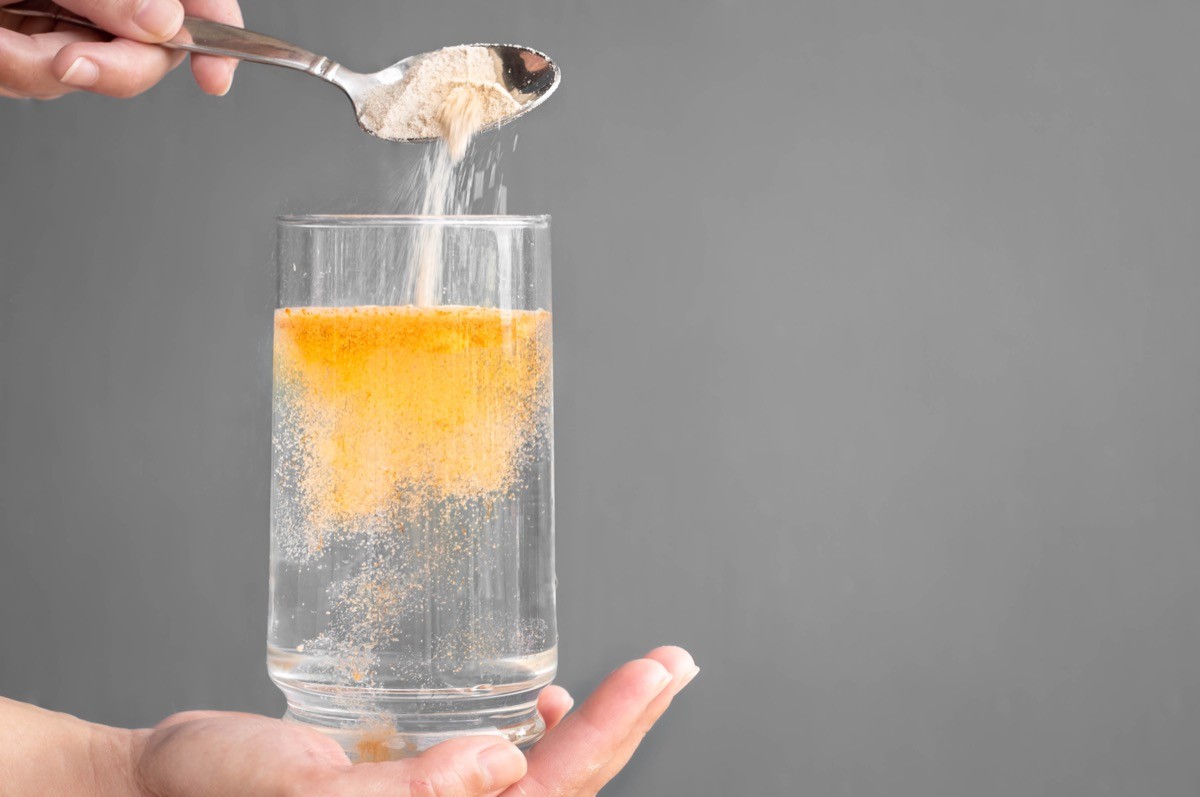
Staying hydrated when your period is approaching can also help ease your symptoms—and that’s where electrolyte supplements come in.
“Hydration combined with optimal electrolyte levels—such as sodium, potassium, magnesium, and calcium—supports your body in several ways. These electrolytes help regulate the movement of fluids in and out of cells, ensuring that your muscles and cells get the nutrients and oxygen they need,” Anderson tells Best Life.
“This balance prevents dehydration, which can exacerbate PMS-related fatigue by reducing blood volume and slowing oxygen delivery to cells. Additionally, hydration plays a key role in preventing water retention, a common cause of bloating during PMS, by ensuring the body isn’t retaining excess fluids in response to dehydration,” she adds.
In particular, the doctor recommends Cure Hydration‘s all-natural, no-sugar-added electrolyte mix, noting that it not only hydrates but also replenishes essential minerals that actively target and improve PMS symptoms. “This offers a more effective and complete solution than water alone,” she notes.
3
Black cohosh
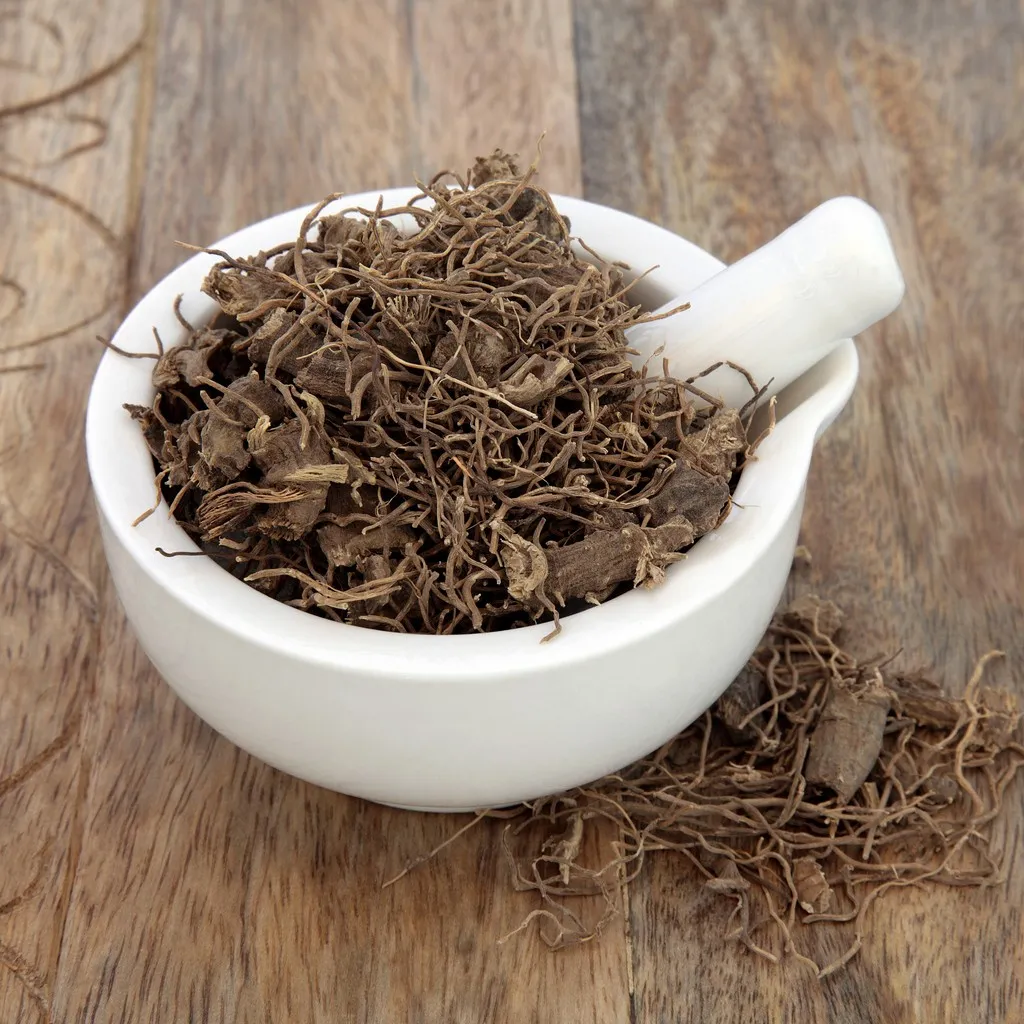
At any stage of menstruation, supplements that contain black cohosh could help you feel your best. In fact, Pamela Peeke, MD, MPH, FACP, FACSM, a doctor and women’s health expert working with Solaray, says that it can help “reduce the intensity of hot flashes and night sweats and support a balanced mood” in menopausal women. Black cohosh also “contains biological molecules that may help support strong, healthy bones,” the company adds.
However, people suffering from PMS can also enjoy big benefits, Anderson says, recommending a 20-40 mg daily dose. “Black cohosh is an herbal remedy traditionally used to relieve symptoms associated with PMS and menopause. It’s especially good for easing mood swings and cramps. The active compounds in black cohosh are thought to mimic estrogen, helping to balance hormones,” she explains.
4
Magnesium
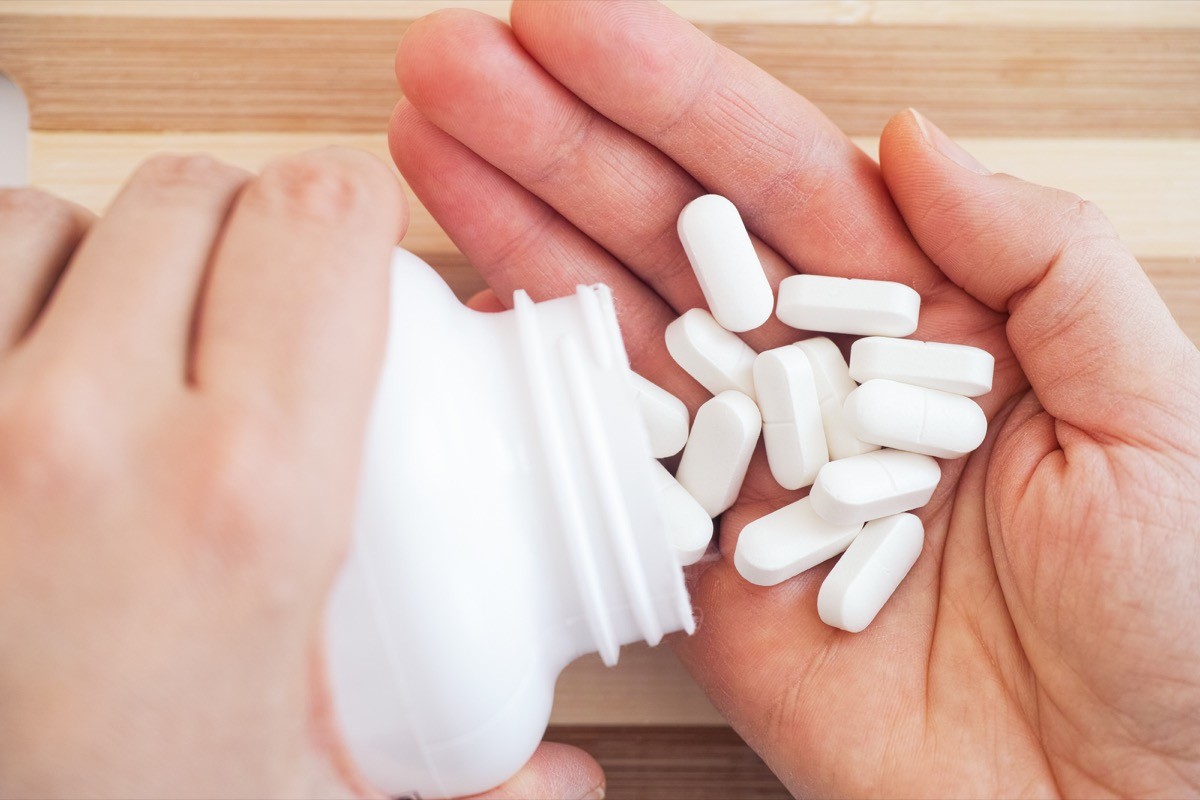
Taking a 200-400 mg daily dose of magnesium could also help you tackle a range of PMS-related ailments. However, you can also get the mineral from magnesium-rich foods, including spinach, kale, almonds, cashews, pumpkin seeds, and whole grains.
“Magnesium is effective for managing water retention, bloating, and mood changes. It works to reduce inflammation and may improve mood by supporting neurotransmitter function, thus helping to mitigate irritability and anxiety,” says Anderson.
Additionally, magnesium is known to improve sleep, which could be useful for those experiencing PMS-related sleep disturbances.
RELATED: 21 Surprising Signs You Have a Vitamin Deficiency.
5
Evening primrose oil
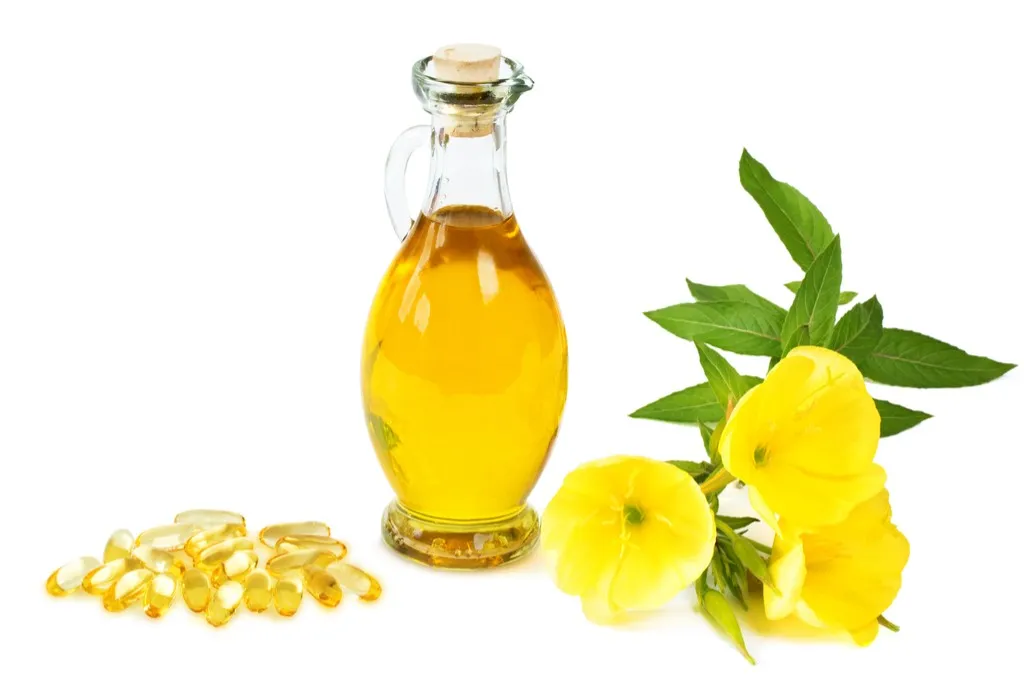
Anderson next suggests asking your doctor about a lesser-known supplement—evening primrose oil.
“Evening Primrose Oil is packed with gamma-linolenic acid (GLA), an essential fatty acid that helps regulate hormones. GLA is great for easing PMS symptoms like breast tenderness, bloating, and irritability by keeping hormone levels in check and reducing inflammation. The usual dose is 500 to 1,000 mg per day,” she tells Best Life.
6
Vitamin E
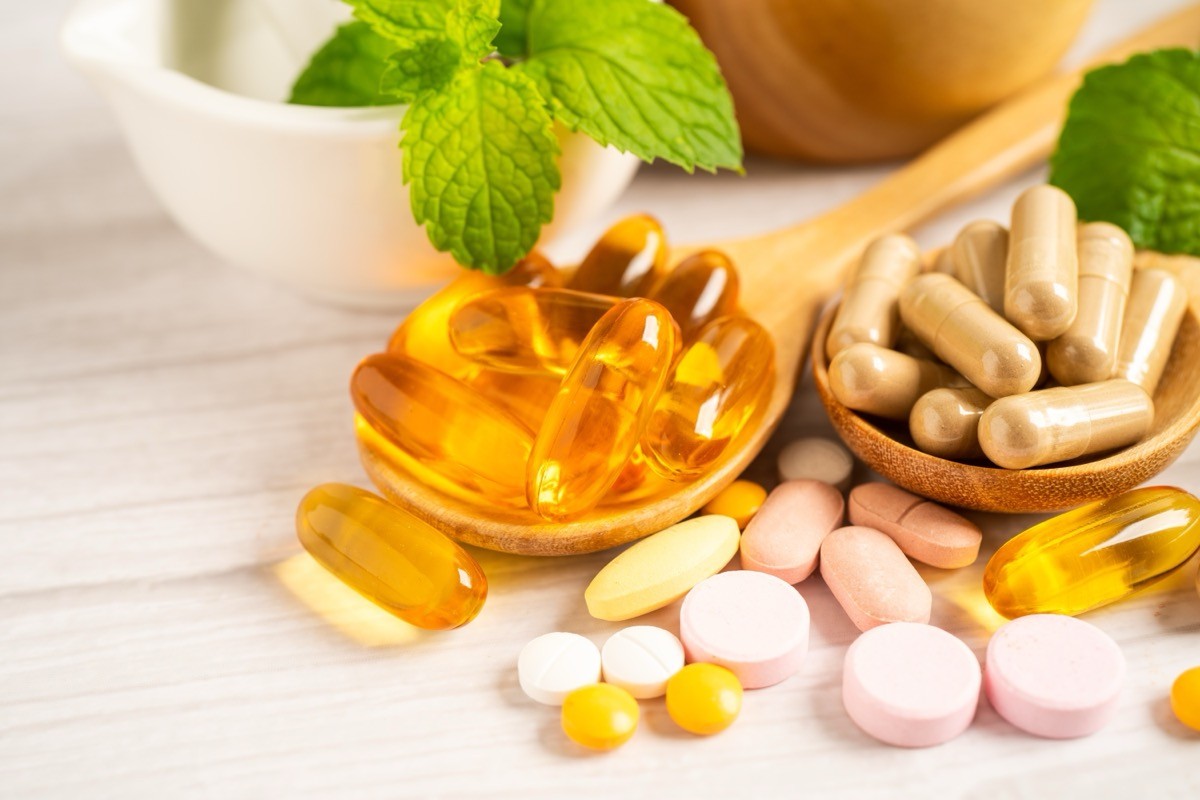
Some studies have shown that vitamin E has the power to protect people with PMS against fatigue, irritability and water retention. But one of its biggest benefits is that it can help relieve breast tenderness, Anderson says.
“Vitamin E is an antioxidant that helps fight off harmful substances in our bodies that can cause stress at a cellular level, known as oxidative stress. This stress can upset hormones and lead to breast discomfort. By protecting the cells and improving blood flow, vitamin E may help reduce pain and swelling in breast tissue. The suggested dose is 400 IU daily,” the doctor shares.
7
Turmeric
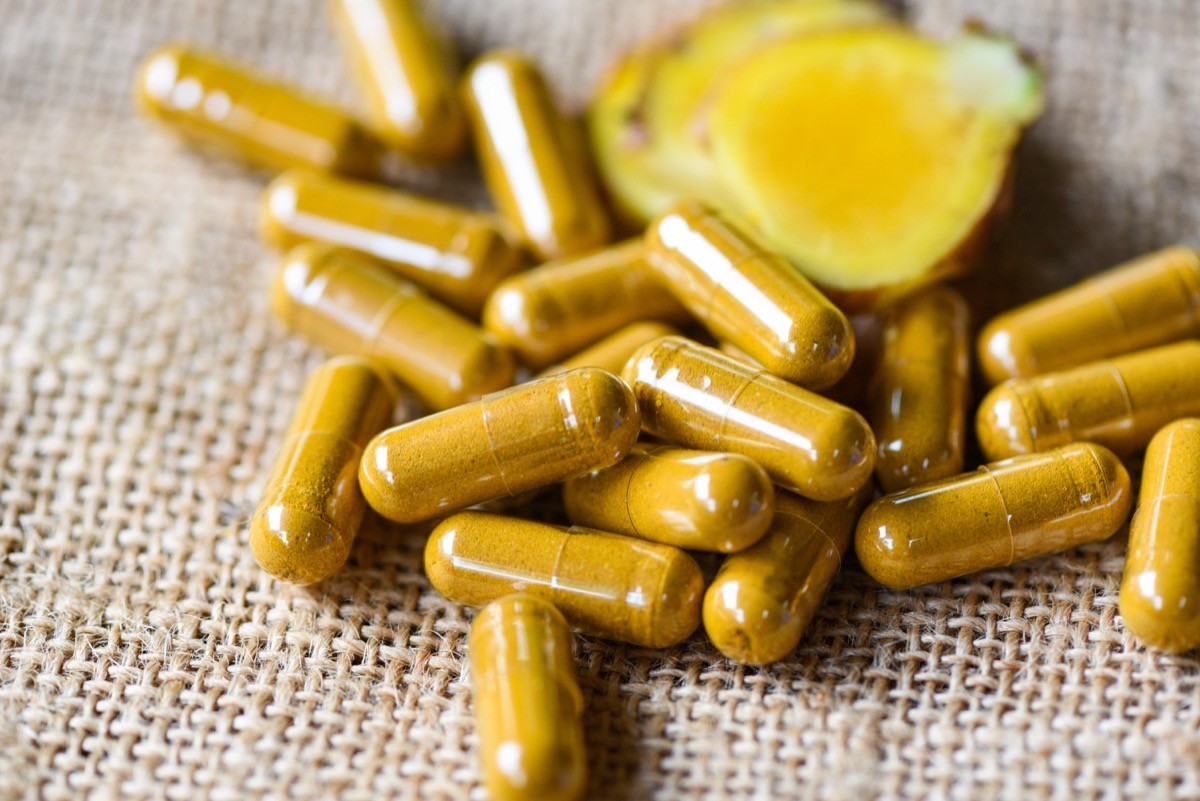
Turmeric is believed to benefit those with skin disorders, arthritis, respiratory problems, depression, allergies, and digestive disorders, among other things. Anderson adds premenstrual syndrome to that list.
“Turmeric contains curcumin, a strong anti-inflammatory that can help with PMS symptoms like cramps, bloating, and mood swings. It’s also thought to support menstrual health by improving blood circulation and reducing pain. For the best results, try taking 500 to 1,000mg each day,” she says.
RELATED: 9 Supplements That Can Damage Your Stomach, Doctors Say.
8
Calcium
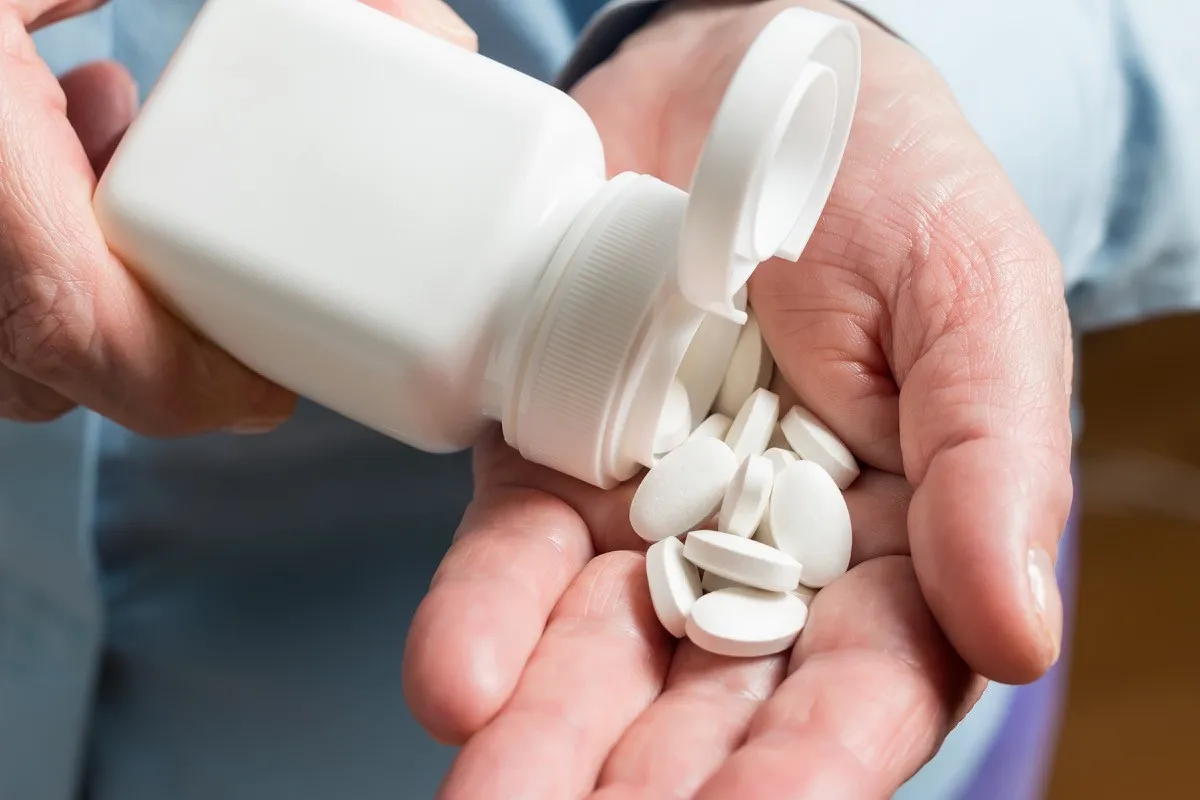
Calcium is important for more than your bone health—especially if you’re struggling with symptoms of PMS.
“Calcium keeps your mood in check, fights fluid retention, and reduces cravings, making it useful for managing PMS symptoms,” explains Anderson. “Try to get about 1,000 to 1,200 mg daily. You can find calcium in foods like sardines, canned salmon, almonds, tofu, and edamame.”
9
Chasteberry
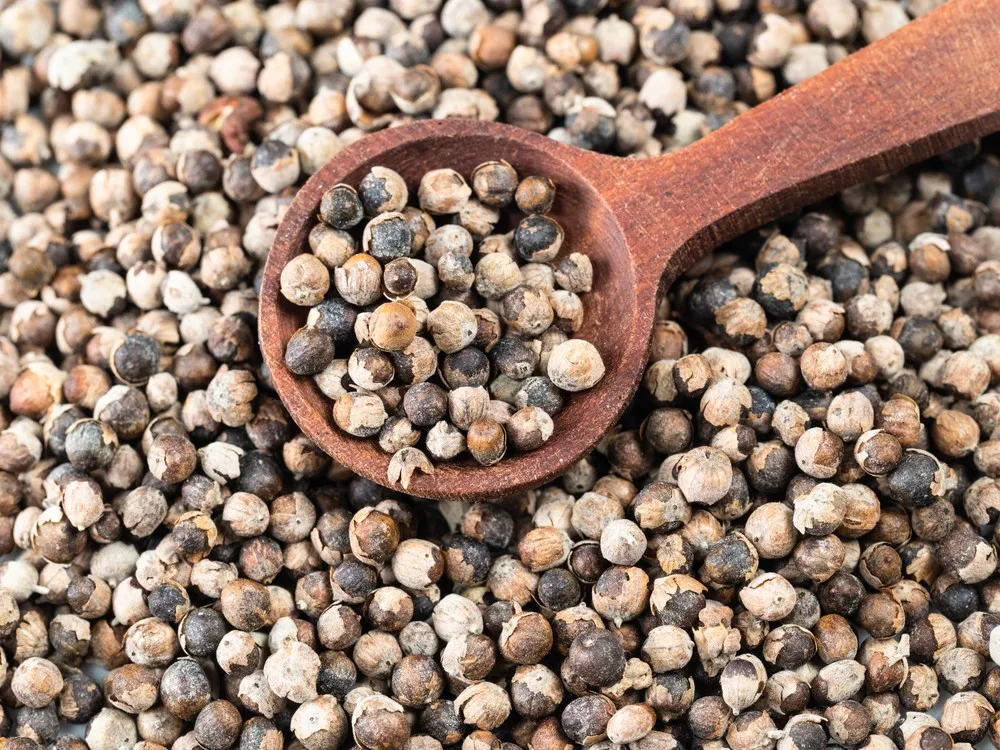
Evidence on chasteberry is not conclusive, but some experts say that it can improve a handful of key PMS symptoms.
“Chasteberry is an herbal remedy that helps regulate key hormones—prolactin, progesterone, and estrogen—involved in the menstrual cycle,” explains Anderson. “It can effectively reduce common PMS symptoms like breast tenderness, mood swings, and irregular periods,” she adds, recommending a 20 to 40 mg daily dose.
10
Ashwagandha
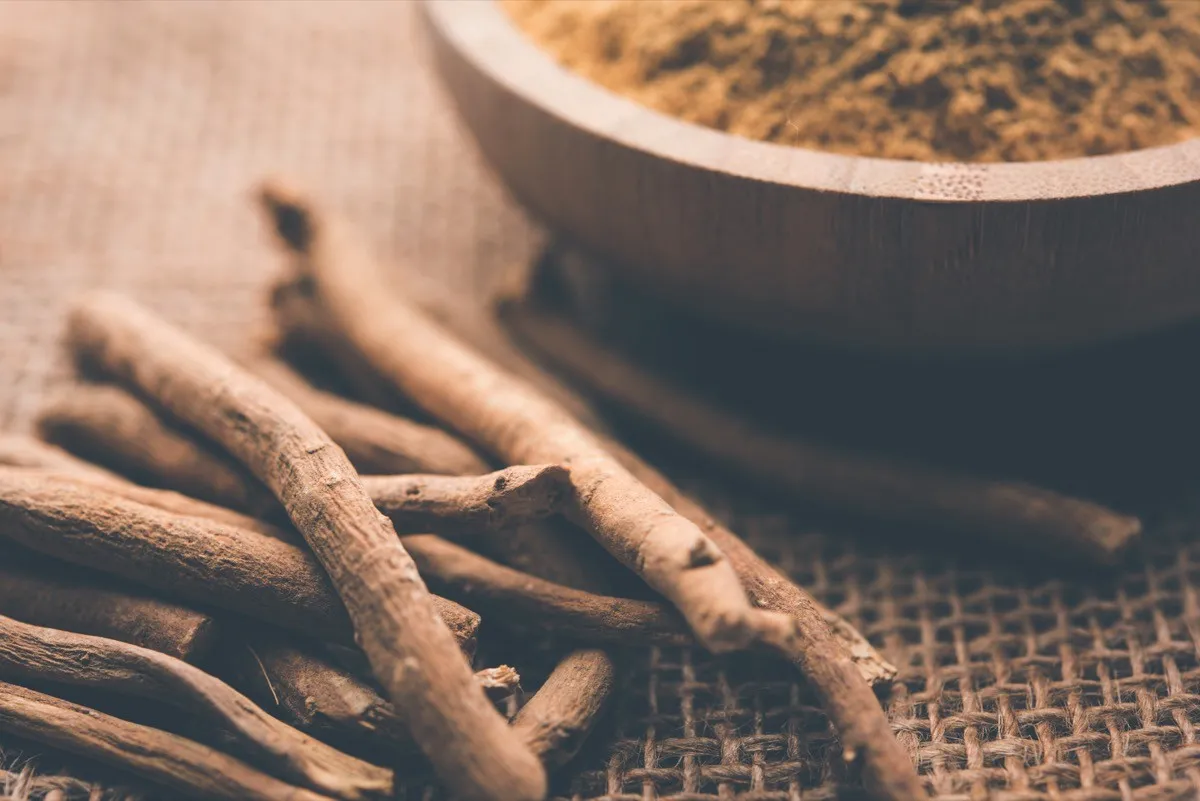
Ashwagandha is all the rage right now, and if you’re suffering from PMS symptoms, Anderson says it could be well worth a try.
“Ashwagandha helps keep cortisol levels down—the hormone released when you’re stressed. Elevated cortisol can lead to anxiety, irritability, and mood swings. By balancing cortisol, ashwagandha can help you maintain a more stable mood and reduce stress-related symptoms. The recommended dose is 300 to 600 mg per day,” she says.
It’s important to remember that any time you begin a new supplement regimen, it should be done under your doctor’s supervision. “Check with your primary care provider before taking any supplements, as they may interfere with your medications or have contraindications based on your individual health needs,” Anderson advises.